Idea Testing Tools Every Founder Should Know for Smarter Startup Decisions
From Zero to Validation: Smarter Tools to Test Before You Build
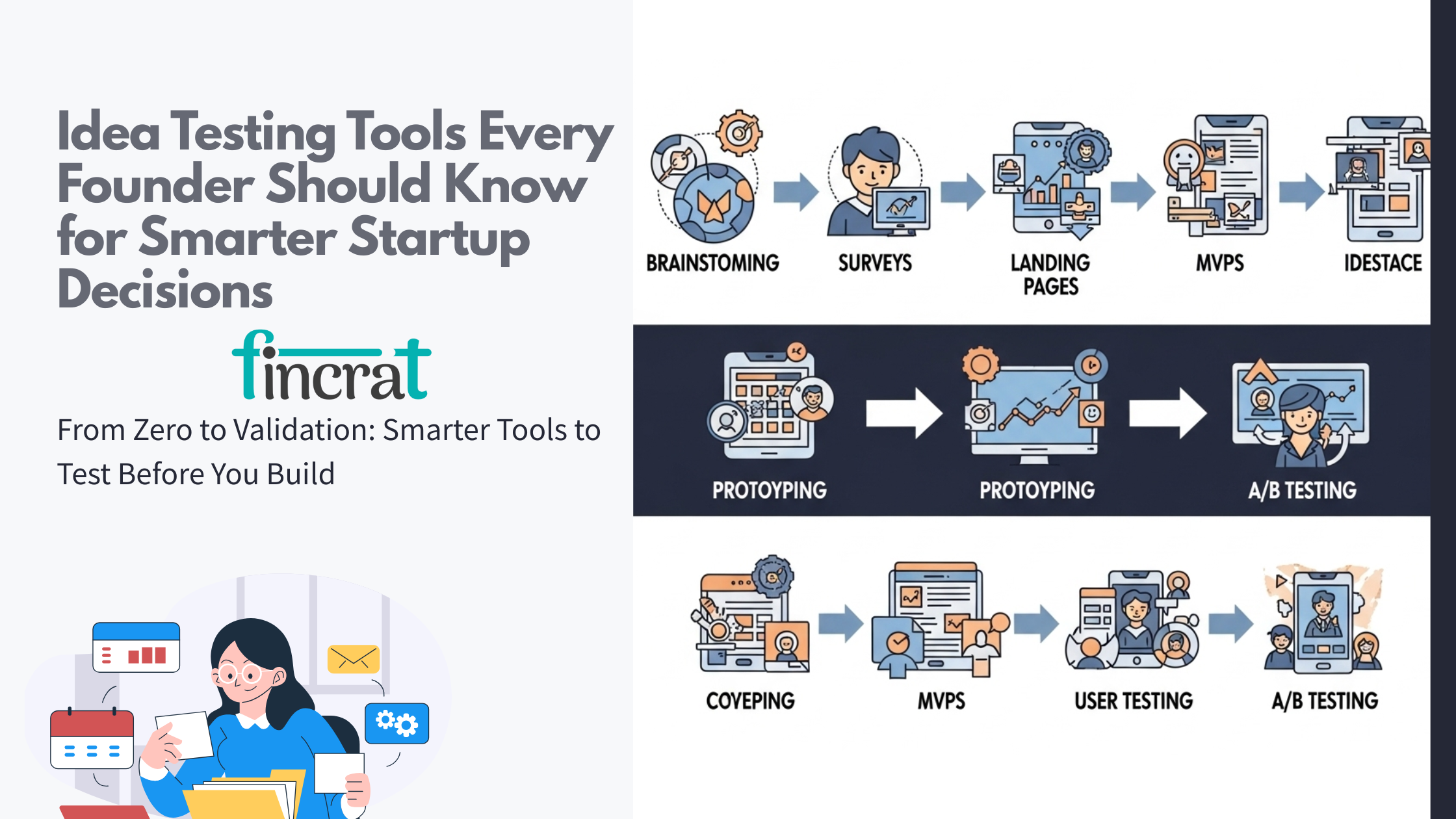
In today’s startup ecosystem, the gap between a great idea and a successful product is validation. That means testing early, failing fast, and learning even faster. And in 2025, you’re not short on tools to help you do just that.
Whether you’re still sketching your idea on paper or prepping your MVP, using the right tools can mean the difference between launching something impactful — or wasting months (and money) on something no one wants.
In this guide, we’ll walk you through the top idea testing tools every founder should Know for smarter startup decisions— categorized by goal, use case, and stage of validation.
Why Use Tools for Idea Testing?
Manual customer discovery is powerful — but tools amplify your speed, scale, and insights. They allow you to:
- Utilizing idea testing tools provides startup entrepreneurs with a huge advantage by turning rough hypotheses into practical knowledge.
- Rather than trusting gut feel or anecdotal feedback, these tools enable you to prove your idea with actual users, actual behavior, and actual data.
- They enable you to quickly test, collect feedback, and measure interest — often in a few days — without having to create a complete product or assemble a team.
- From surveys and landing pages to prototypes and heatmaps, these tools enable you to see what your target audience truly needs, not what you assume they need.
- More significantly, idea testing tools cause you to fail faster and wiser.
- They reveal key flaws, market mismatches, or pricing problems before you invest time, money, and energy in development.
- In the modern startup environment where speed, efficacy, and concentration are paramount, these tools provide you with the flexibility to shift direction quickly or double down on what is clicking.
- They are also instrumental in assisting you in gaining investor trust, as the majority of contemporary investors now demand proof of credibility — even at the seed level.
- A validated concept, supported by quantifiable interest or early traction, is significantly more valuable than a nebulous pitch or vision.
- Finally, idea testing tools allow you to act with confidence, minimize risk, and make smart choices.
- They don't only assist you in creating a product — they assist you in creating the correct product, for the correct people, at the correct time.
7 Idea Testing Tools You Really Need to Get Started
1. Customer & Survey Feedback Tools
Directly asking your target audience is perhaps the simplest and lowest-budget way to test your idea. The following tools assist you in gathering insights, revealing pain points, and measuring interest before you create anything.
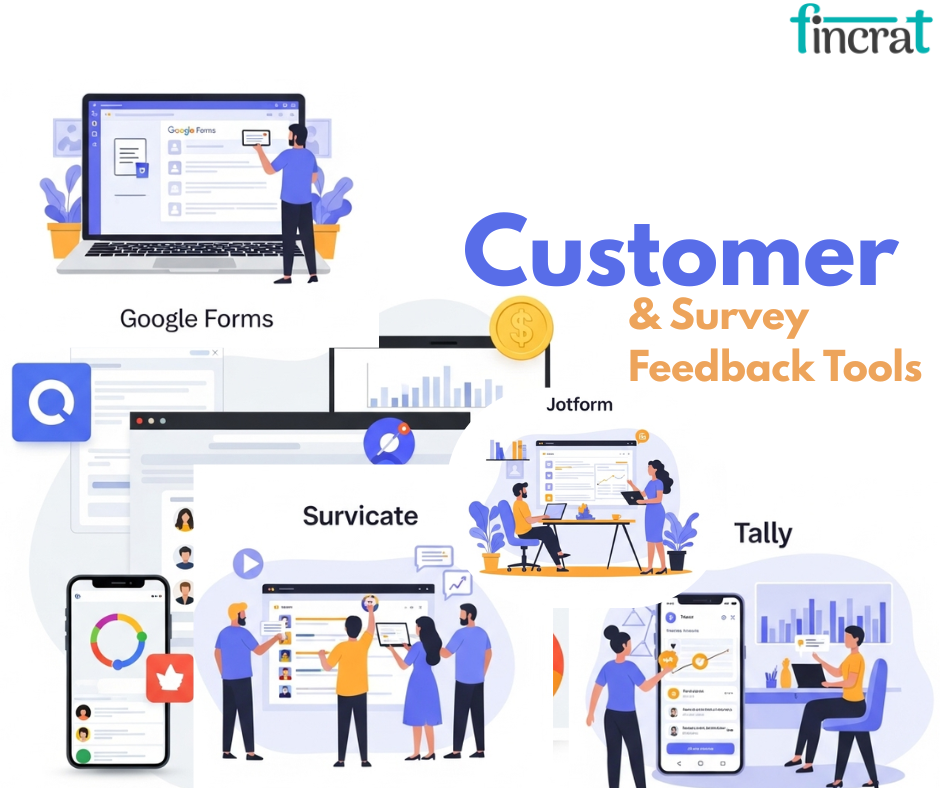
Typeform
- Typeform allows you to design interactive, conversational surveys that read more like a conversation. Its visual interface and adjustable logic make it perfect for early-stage testing.
- Use it to administer problem-finding surveys, conduct price sensitivity tests, or query users about their most significant pain point.
- Best for: Founder-conducted customer interviews, UX testing, initial waitlist feedback
Google Forms
- Quick, free, and super handy — Google Forms is one favorite among founders bootstrapping on a shoestring. Though basic, it plays nice with Google Sheets for analysis and is great for internal or fly-by-night surveys.
- Best for: Rapid testing with friends, social media surveys, scorecards for ideas
Tally.so
- If you prefer a lovely survey that looks like Notion, then Tally is for you. It's very easy to use and supports integrations with software such as Airtable and Notion. It's perfect for gathering waitlist signups, UX polling, or pre-launch interest forms.
- Best for: Founders looking for clean, sleek feedback forms without the learning experience
Survicate
- Survicate enables you to place surveys within your product or site to gain instant feedback. When testing a landing page or early MVP, it provides real-time feedback based on real behavior.
- Best for: Early usage or onboarding tests in-product feedback
Jotform
- For more sophisticated forms, Jotform gives logic-based flows, file uploads, and mobile-friendly surveys. It's usually utilized by startups with a bit more advanced testing funnels.
- Best for: Founders who require intelligent survey logic or intake forms for B2B testing
2. Landing Page Builders & Smoke Test Tools
With a landing page in place before creating a full product, you can check whether people are interested. These tools enable you to test messaging, signups, or even pricing — all with minimal setup.
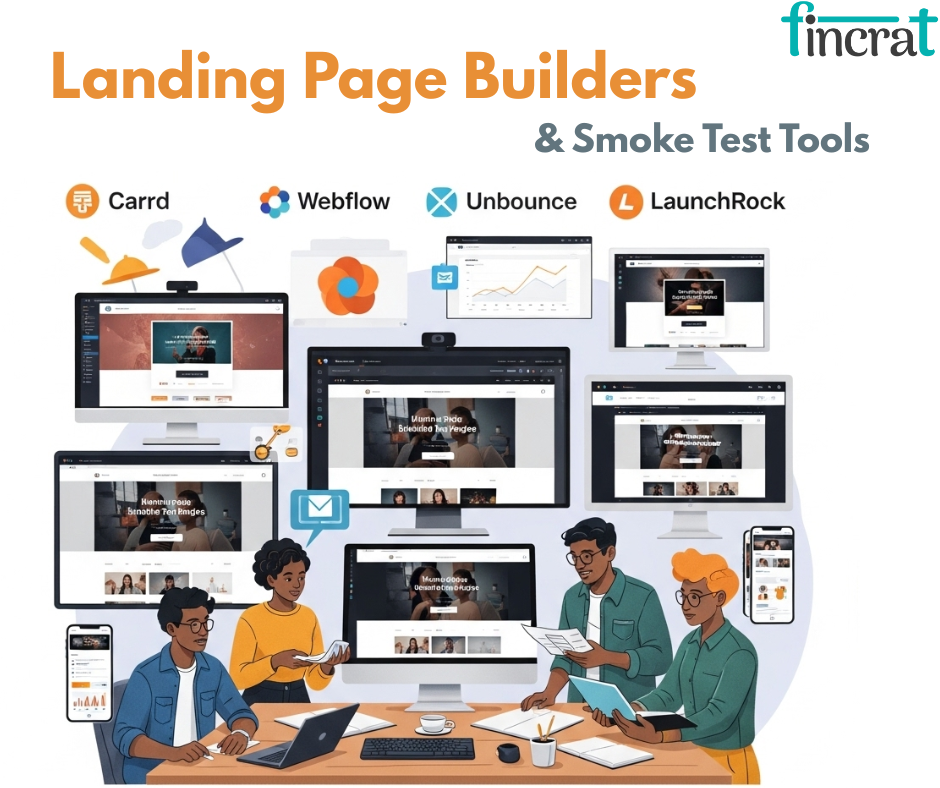
Carrd
- Carrd is a one-page site builder that you can learn in under an hour. For a few dollars a year, you can create several high-converting smoke test pages — ideal for solo founders or MVP ideas in the early stages.
- Best for: Fast validation experiments, lead magnet tests, email interest collection
Webflow
- A more advanced visual builder, Webflow offers total design control without requiring code. It's ideal for creating legit-looking landing pages or initial startup sites to build credibility before testing user behavior.
- Best for: Founders who have some design chops but desire long-term control over MVP sites
Unbounce
- Unbounce is designed for marketers but just as capable for testing ideas. Its A/B testing functionality allows you to execute several versions of headlines, CTAs, and value propositions — perfect for testing what converts.
- Ideal for: Messaging optimization, pricing tier testing, or confirming multiple use cases
LaunchRock
- Built for startups, LaunchRock assists you in building a waitlist page, monitoring signups, and generating buzz. It's not glamorous, but it's made for rapid startup validation and pre-launch traction.
- Best for: Pre-launch interest pages and "Coming Soon" MVPs
Mixo.io
- AI-powered Mixo generates a complete landing page (design and copy) for your startup concept in less than one minute. It's ideal for entrepreneurs who seek to test ideas quickly on various micro-niches.
- Ideal for: Serial testers, lean startup enthusiasts, and MVP-first marketers
3. MVP & No-Code Prototyping Tools
If you need to test a feature or concept, don’t code — prototype. These no-code tools let you build interactive MVPs that simulate real product behavior for feedback, without writing a single line of code.
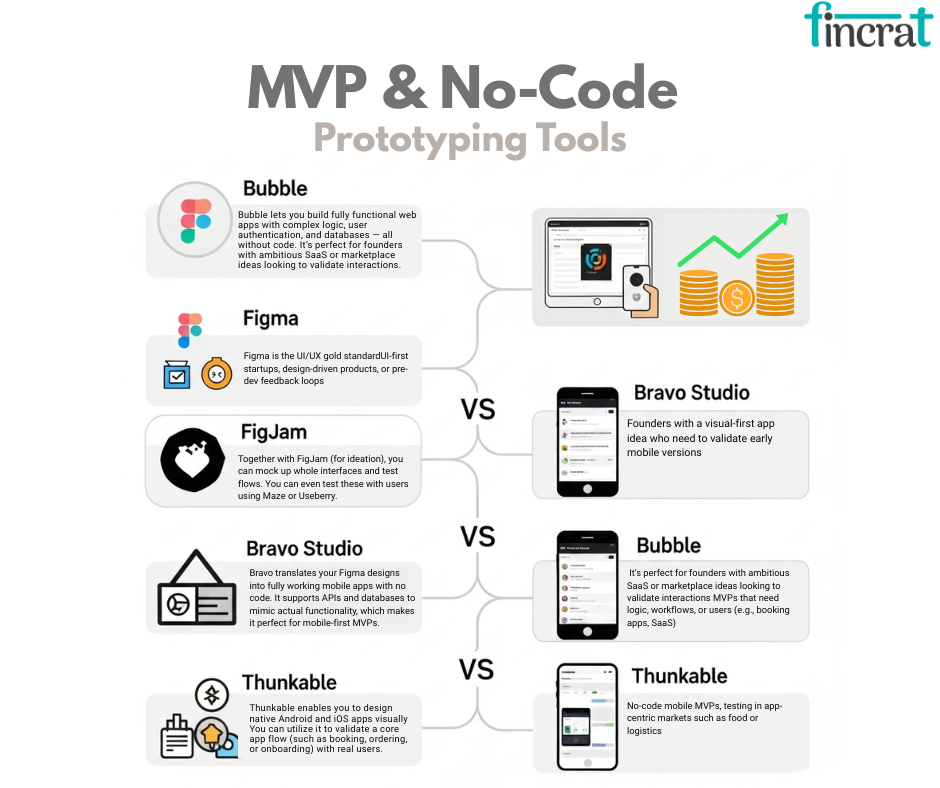
Bubble
- Bubble lets you build fully functional web apps with complex logic, user authentication, and databases — all without code. It’s perfect for founders with ambitious SaaS or marketplace ideas looking to validate interactions.
- Best for: MVPs that need logic, workflows, or users (e.g., booking apps, SaaS)
Figma + FigJam
- Figma is the UI/UX gold standard. Together with FigJam (for ideation), you can mock up whole interfaces and test flows. You can even test these with users using Maze or Useberry.
- Best for: UI-first startups, design-driven products, or pre-dev feedback loops
Bravo Studio
- Bravo translates your Figma designs into fully working mobile apps with no code. It supports APIs and databases to mimic actual functionality, which makes it perfect for mobile-first MVPs.
- Best for: Founders with a visual-first app idea who need to validate early mobile versions
Thunkable
- Thunkable enables you to design native Android and iOS apps visually. You can utilize it to validate a core app flow (such as booking, ordering, or onboarding) with real users.
- Best for: No-code mobile MVPs, testing in app-centric markets such as food or logistics
4. Interview, Research & Customer Insight Tools
Interviews form the core of idea testing. These tools assist you in structuring, analyzing, and deriving insight from actual conversations.
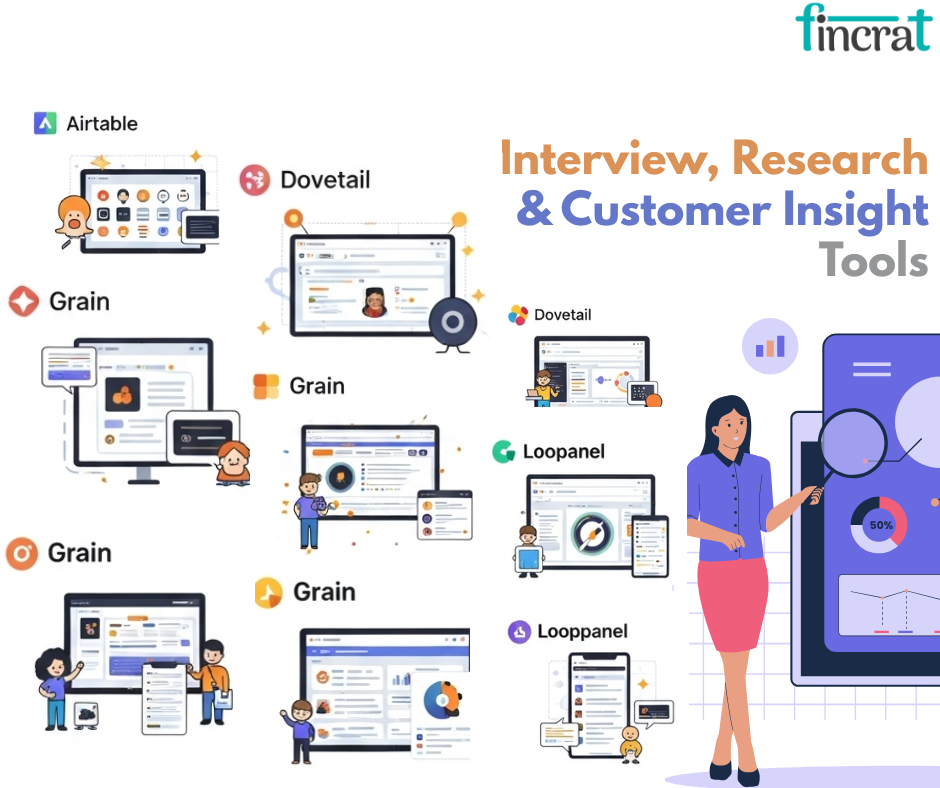
Airtable
- Airtable isn't just a spreadsheet. It's an adaptable database that assists you in logging interview answers, labeling feedback, and ranking features. Pair it with Tally or Google Forms and you've got a light CRM for customer knowledge.
- Ideal for: Founders looking to monitor trends in interview answers or issue themes
Dovetail
- Designed for researchers, Dovetail allows you to transcribe, annotate, and analyze interviews at scale. It's ideal for converting hundreds of customer calls into organized insights and feature maps.
- Best for: UX researchers or startup founders conducting in-depth customer discovery
Grain
- Grain records Zoom calls and allows you to mark and share important moments. You can create video clips to share real user quotes with your team or investors.
- Best for: Real user insights in pitch decks, or collaboration on research with remote teams
Looppanel
- Imagine Looppanel as an AI-powered, modern equivalent of a user research notebook. It marries call transcription with highlight tagging, sentiment scoring, and collaboration with teams.
- Best for: Scaling research within teams or agencies validating multiple concepts
5. Behavioral Analytics & User Testing Tools
Knowing what users do, not what they say, is essential. These tools assist you in observing actual users clicking and utilizing your MVP or landing pages.
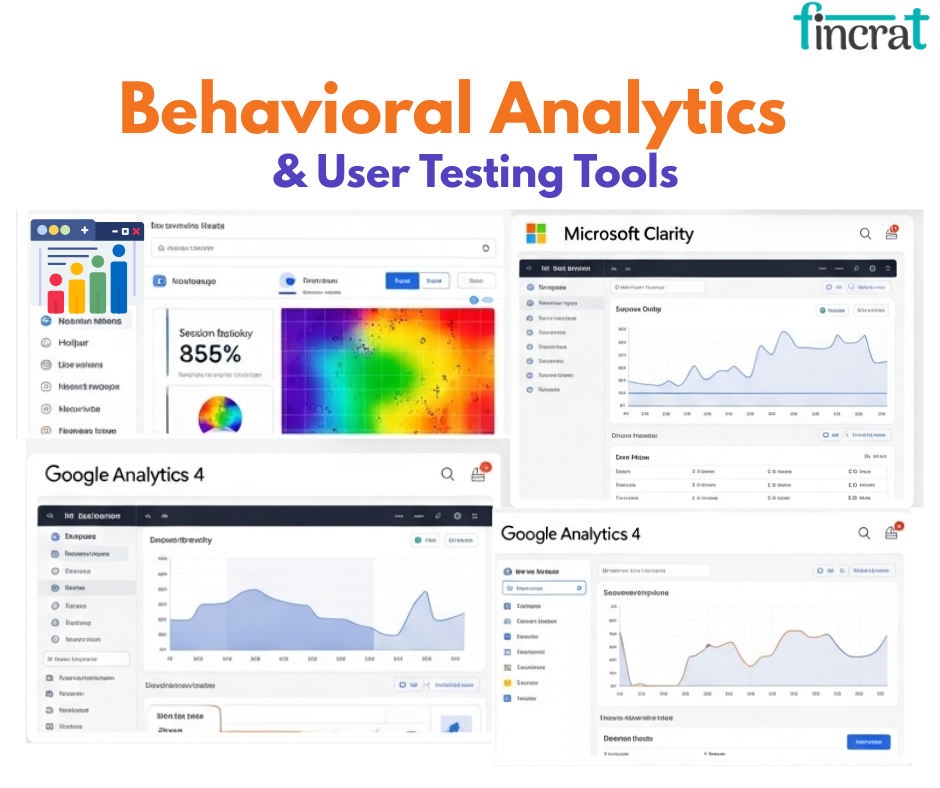
Hotjar
- Hotjar offers heatmaps, scroll maps, and session recordings so you can observe exactly how users engage with your site or prototype.
- Ideal for: Detecting drop-off areas, analyzing engagement, and enhancing UX
Microsoft Clarity
- A free solution to Hotjar with robust heatmaps and click-tracking. It even comes with AI-powered session replay analysis.
- Best for: Budget-conscious startups that need quality behavior data
Google Analytics 4
- Still indispensable. GA4 has event-based tracking, funnel visualization, and custom goals for landing pages or MVPs.
- Best for: Conversions, bounce rates, and user flows
6. Preorders, Presales & Crowdfunding Tools
Need the ultimate validation? Have someone pay first before you build. These tools assist you in running preorders or crowdfund to validate price and actual demand.
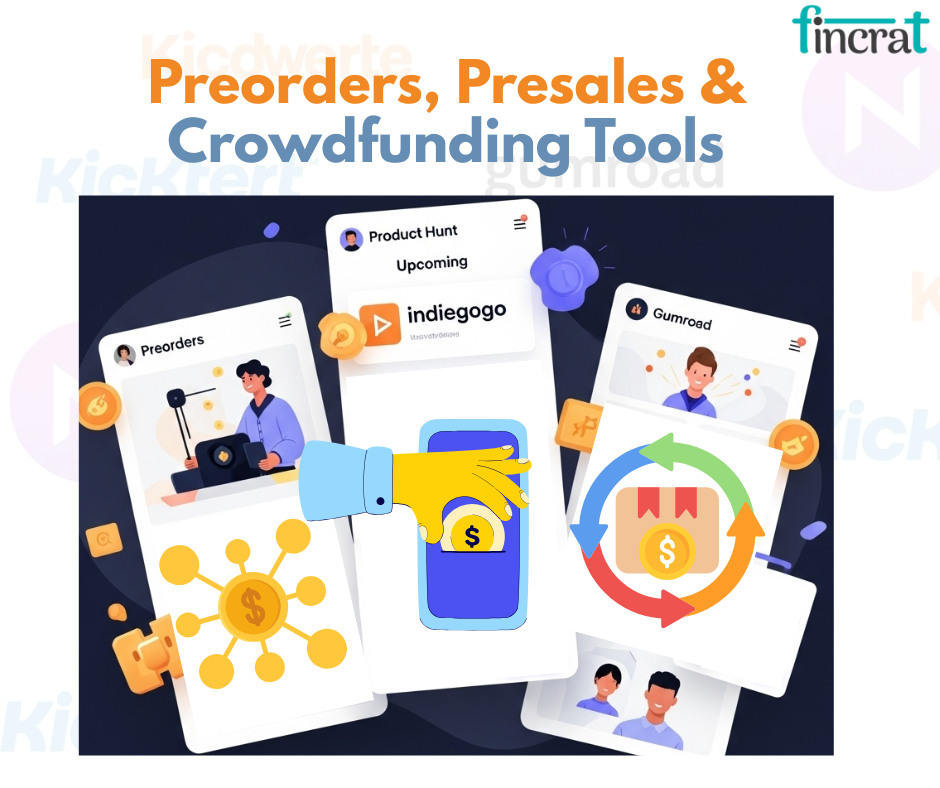
Gumroad
- Gumroad enables you to sell digital goods, early access, or prototypes directly — ideal for presales. You can ship with a landing page and a buy button in minutes.
- Best for: Solopreneurs, info product creators, or beta access sales
Kickstarter
- One of the most popular crowdfunding sites, Kickstarter allows you to fundraise from early backers — with strong community and media visibility.
- Best for: Hardware, physical goods, or creative software with a visual component
Indiegogo
- A more agile solution to Kickstarter with fixed and flexible funding models. Excellent for global campaigns.
- Best for: Founders going global or testing reward levels
Product Hunt Upcoming
- Product Hunt Upcoming enables you to build hype ahead of your launch. Build a pre-launch page, gather emails, and gain early traction from the startup community.
- Ideal for: SaaS founders, tool creators, and solo hackers testing prior to PH launch day
7. AI-Powered Validation Tools
AI is now included in every founder's toolkit — and it can accelerate your testing dramatically.

ChatGPT
- Utilize AI to mimic user objections, come up with interview questions, summarize surveys, write copy, or analyze feedback. It's having a testing assistant at your beck and call 24/7.
- Ideal for: Fast iteration, idea sharpening, and testing multiple use-case hooks
Tome
- Build beautiful, pitch-style visual reports and presentations with AI. Ideal for summarizing idea tests, creating pitch decks, or writing investor updates.
- Ideal for: Taking validation data and making it visually appealing and deck-worthy
Final Thoughts: Test First, Win More
Startups don’t fail because of bad code — they fail because of untested ideas. In today’s landscape, founders no longer have an excuse to guess when they can validate.
With a wide range of tools now available — from survey platforms to no-code builders and AI-powered research assistants — it’s faster, cheaper, and smarter than ever to test before you build.
These tools help you validate demand, understand your target users, measure interest, and pivot with confidence if needed. So before you commit to code or launch a product, take the time to test your idea.
Because building something people truly want starts not with assumptions, but with understanding what they actually need.
“Test before you hustle — because even the best ideas need proof before they deserve your grind.”

